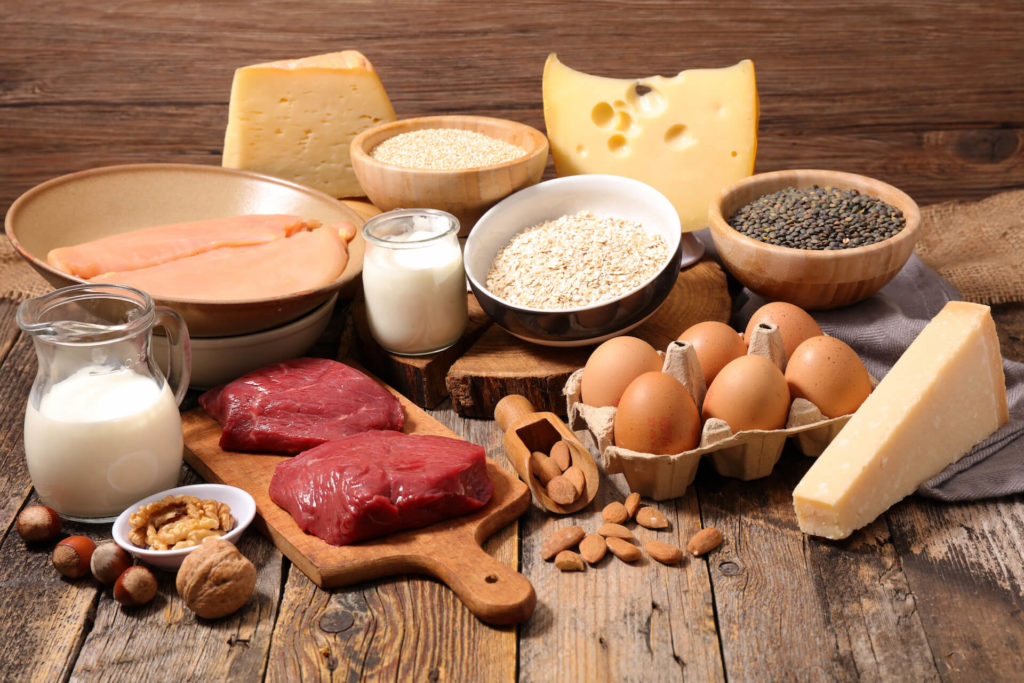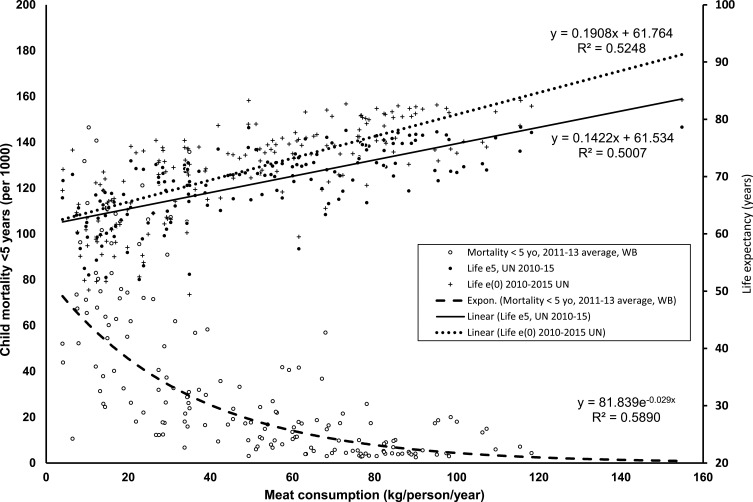If you want your kids to live longer, as well as yourself, you better up the protein intake.
And if there’s one thing my clients know I preach on, it’s more protein.
It’s a soapbox that I live on, and I won’t be getting off of anytime soon. And while there’s a HUGE host of reasons why, today we’re going to touch on life expectancy – both kids and adults.
A study published on February 22, 2022 entitled, “Total Meat Intake is Associated with Life Expectancy: A Cross-Sectional Data Analysis of 175 Contemporary Populations“, suggests that the association between plant-based (vegetarianism) and extended life span is increasingly criticized due to the increasing likelihood of meat being the main factor for overall health.
Populations with more meat consumption have greater life expectancies.

Total Meat Intake Study: Results
The study found that, “Worldwide, bivariate correlation analyses revealed that meat intake is positively correlated with life expectancies. This relationship remained significant when influences of caloric intake, urbanization, obesity, education and carbohydrate crops were statistically controlled. Stepwise linear regression selected meat intake, not carbohydrate crops, as one of the significant predictors of life expectancy. In contrast, carbohydrate crops showed weak and negative correlation with life expectancy.”
That last sentence is key: carbohydrate crops (meaning plants) showed weak and negative correlation with life expectancy. The prevailing suggestion that the vegetarian diet, or any high-carbohydrate diet for that matter, improves health and longevity is questionable.

As the data shows, those that eat meat tend to live longer.
Eating more meat is connected to lower child mortality rates – and the amount of meat someone eats can explain 50% of the differences in how long they live and their risk of dying young. This is HUGE for parents, as children are more at risk of eating lower protein diets by what low-quality foods parents will buy them.
Benefits of Total Meat Intake?
The study further shows that meat has advantages over plant food because of the nutrients is has. It has complete protein with all essential amino acids. It is rich in vitamins (B12, B6, K, choline, niacin, and riboflavin), and all essential minerals (phosphorus, selenium, and zinc). Simply put, all required nutrients for human survival can be found in the compounds of meat. It is key for health and proper growth – kids included!
Not only does it lead to longer life expectancy in children, it also leads to better growth and development. Nutrients in meat improve breastfeeding and child growth. We can also metabolize and digest it better.
The study continues, “A study of more than 218,000 adults from over 50 countries around the world suggests that consuming unprocessed meat regularly can reduce the risk of early death and can increase human longevity. A recent dietary advice published by Lancet Public Health advocates an increase of dietary meat in order to benefit our heart health and longevity. This study also highlights that saturated fat in meat may be cardio protective, as well as, that meat contains many vitamins and the essential amino acids for human health and well-being.”

Downsides of Total Meat Intake?
The recent trend to blame meat intake on cancer, diabetes, or heart health is also unfounded.
“Recent epidemiological literature highlights that increasing meat consumption, especially in its processed forms, may have adverse health effects, such as cancer, cardiovascular disease, obesity, and diabetes. However, there has been no clinical trial evidence to consolidate the putative negative effects of processed meat consumption for human health.“
Meaning that there are no studies that can conclusively say that meat intake is at fault. They can blame hotdogs, chicken wings, and other fried foods with questionable meats. But they cannot pin that on unprocessed meats.
Unprocessed meats (steak, ground beef, etc) had no association with cardiovascular disease risk.
Further, saturated fat in red meat has been associated with the onset of atherosclerosis. However, this idea is based on observations or animal studies. It lacks randomized controlled trials. These are standard studies designed to find causation.

Total Meat Intake: Study Conclusions
- The underlying reasons may be that meat not only provides energy but also complete nutrients to human body.
- From the evolutionary point of view, meat has arguably been an indispensable component in human diet for millions of years, which is evidenced, genetically, by meat digesting enzymes and digestive tract anatomy.
- The complete nutritional profile of meat and human adaptation to meat eating have enabled humans to gain many physical benefits, including greater life expectancy.
- Meat intake, or its adequate replacement, should be incorporated into nutritional science to improve human life expectancy.
If you need your diet adjusted, and want a coach to give you the exact amount of protein (and what kinds to eat), I have a protocol designed for implementing a higher protein, lower carb diet alongside a exercise regimen that works. Watch the free workshop here.

